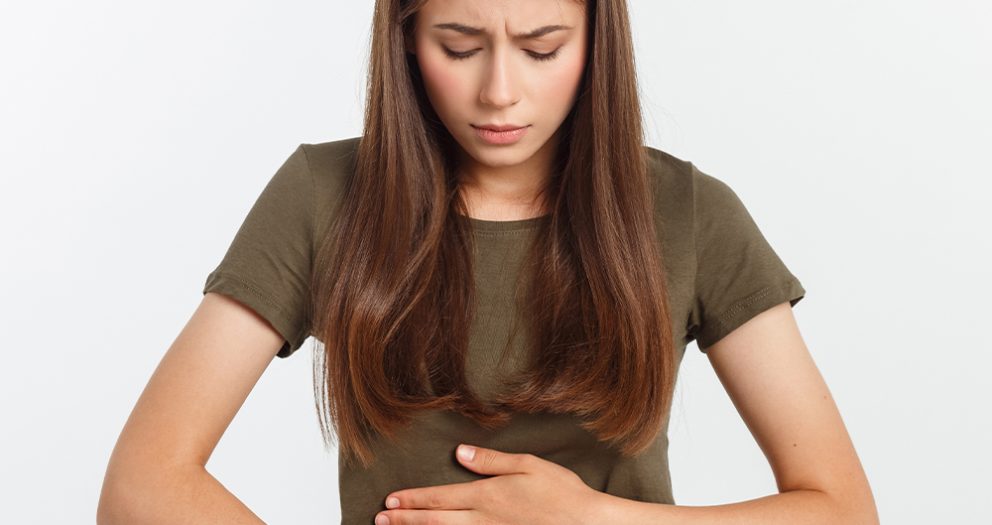In so far as a healthy, virile, clean and normal functioning body is concerned, irritable bowel syndrome is perhaps the most dangerous and harmful condition that can infect your GI tract region and play havoc with the proper and effective functioning of your digestive system. There’s so much to learn about IBS but suffice it to say that if it can be treated effectively and safely, that would be fabulous don’t you think?
Efficacy of Domperidone
This generic medication is also known by its brand name Motilium and can also be used for the treatment of people suffering from irritable bowel syndrome (IBS).
If you are suffering from IBS, domperidone may be the right medication treatment for you.
It’s this active ingredient that has the propensity to block the dopamine receptors in the upper part of your gastrointestinal tract.
This interference can lead to increased contractions of the stomach and bowel and by increasing these contractions Domperidone (Motilium) assists food to move more smoothly through the stomach.
At the same time, Domperidone can act to relieve nausea and vomiting usually associated with impaired digestion.
Another benefit of Motilium (domperidone) is its anti-emetic drug that acts as a prokinetic agent that accelerates the digestive process thereby preventing a nauseous feeling.
What is IBS?
Simply put IBS, which is also known as spastic colon, can be defined as a kind of gastrointestinal disorder that has a variety of signs and symptoms that include:
- Abdominal pain
- Changed bowel habits
- Increase in bodilygas and release
- Bloatingor distention
- Cramping spasms
- Intolerance of food
Irritable bowel is a functional disorder which refers specifically to the alterations in the functioning of the digestive system which can result in the collection of symptoms referred to as IBS
Essentially, it’s a problem with the movement or ‘motility’ of substance in the gastrointestinal (GI) tract instead of any damage done to tissues of the digestive system.
It’s not possible to pinpoint the exact cause of irritable bowel syndrome but it’s sufficient to say that multiple factors may be responsible for causing its existence in your digestive system.
In the past, Irritable bowel syndrome was also known as spastic colon or bowel, functional bowel disease, mucous colitis, or nervous colon.
This functional disease has a variety of forms with diarrheafeaturing chronic or recurrent occurrences and constipation characterized by chronic abdominal painand discomfort.
Some people have the unenviable experience of having diarrhea and constipation inalternating sequence.
A diagnosis of IBS is usually based on the duration (of at least 6 months) and on the frequency of signs and symptoms (at least 3 times every month)
Some forms of IBS may be identified with the use of a new blood test.
The condition has no known cure but a variety of treatment options are available for the reduction or elimination of symptoms.
These treatments may include dietry changes, lifestyle changes, and prescription medications
There is no diet that’s specific to IBS and it should be noted that different people react to different types of foods.
For IBS sufferers, it’s important that they identify foods that can trigger their symptoms so that they can avoid them.
Generally speaking, people who suffer from IBS find that it helps to increase their intake of fiber, to drink plenty of water, eat smaller portions of food, and to avoid soda.
The FODMAP diet for IBS
This stands for Fermentable, Oligosaccharides, Disaccharides, Monosaccharaides, and Polyols, which are made up of carbohydrates and sugar alcohols which the body can’t absorb completely, resulting in abdominal pain and bloating.
The FODMAPs can occur in both natural foods, or additives.
These foods can also cause:
- Pain
- Diarrhea
- Abdominal pain or distention
- Gas accumulation
- Bloating
The main characteristic of an irritable bowel syndrome is abdominal painand cramping but there are other symptoms and signs such as:
- Diarrhea: also referred to as IBS-Dcan occur suddenly urging one to have bowel movements in loose stool form.
- Constipation: also referred to as IBS-Cmay be accompanied by labored straining during bowel movements and infrequent stools.
- Increased gas accumulation
- Bloating or abdominal swelling
- Abdominal painthat causes discomfort
- Cramping pain following the consumption of certain food types
- Nausea
- Foamy or mucous laden stool
- Weight lossthat can’t be explained
- Loss of appetite
Technically speaking, indigestionmay also be experienced but it has not be categorized as a symptom.
Very often, symptoms are very often relieved by the movements of the bowel.
Women who suffer from IBS have the propensity to have more symptoms during the monthly menstrual periods.
IBS risk factors
It is thought that the following risk factors have the propensity to cause IBS:
- Unusually strange movements of the small intestines and the colon that are sometimes too fast, or too slow, or too strong.
- A full bowel or high gas accumulation trigger hypersensitivity to pain
- Sensitivity to food, due mainly to poor absorption of acids and sugars in food
- Infection with gastroenteritis (also known as “stomach flu” or “stomach bug”), an invasion of the stomach and intestines by a viral or bacterial infection which may activate IBS symptoms.
- An onset of psychological conditions such as anxiety or depression
- Overgrowth of bacteria in the small intestine (SIBO)
- Although genetics has been thought to be a possible cause of IBS, it still needs to be proven.
What and how you eat can also have an impact on the symptoms of the IBS. While it’s impossible to totally prevent IBS symptoms, you should note that certain foods can activate IBS symptoms.
Your doctor may suggest that you keep a food diary so you can record the type of foods you consume and how they affect.
You should also know that some foods can actually help in preventing symptoms.
Beneficial foods to ingest
These food types may actually provide relief from the symptoms that can activate IBS in your GI tract. The foods include:
- Supplements of dietary fiber
- Water
- Foods high in carbohydrates such as brown rice, whole wheat pasta and whole grain breads,
- Probiotics that contain lactobacillus acidophilusand Bifidobacgterium, and prebiotics as well.
- Some people claim that kefir or Aloe Vera juice can help relieve symptoms. Don’t just take their words for it, but talk to your doctor and let him tell you about these home treatments.
- A diet rich in fiber that can help relieve some cases of IBS constipation, but be careful because this kind of diet may also exacerbate some of the symptoms such as gas accumulation and bloating.
Right now the recommended daily ingestion of fiber stands at 20 – 35 grams per day. However most people fail to achieve this intake but can still achieve relief from just a small increase in fiber intake.
Nevertheless, in order to maximize your benefit from fiber intake its best to increase your fiber intake in your diet gradually so as to reduce gas accumulation in your digestive system.
Harmful foods to avoid or minimize
The following foods should be avoided or minimized if you have IBS:
- Dairy products such as milk and cheese. The point to note here is that symptoms for lactose intolerancecan be the same as IBS symptoms.
- Vegetables that increase gas accumulation, such as Brussels sprouts, broccoli, cauliflower, and cabbage, should be taken in small amounts or totally avoided. Legumes such as beans are also included.
- Fried or fatty foods
- Caffeine, alcohol, or soda
Sugar saturated foods
- Artificial sweeteners
- Nuts
- Chewing gum
Bottom line
Irritable bowel syndrome or IBS can really spoil whatever you are doing or intend doing, This is the case if you have the unfortunate experience of having IBS-D which is that dreaded condition. The reason is that the urge to have a bowel movement is urgent but it can only offer temporary relief. Even so, the pain will reoccur and urge you to have another bowel movement for another temporary relief.






